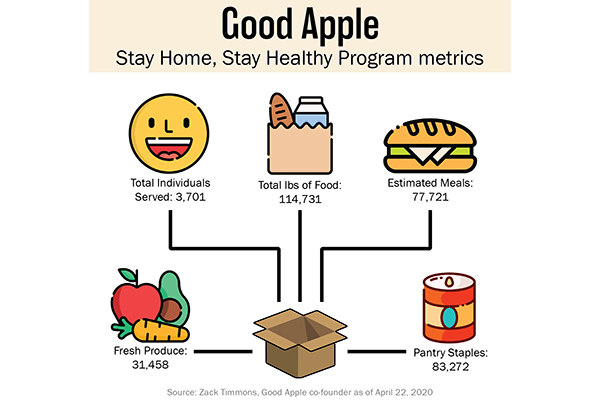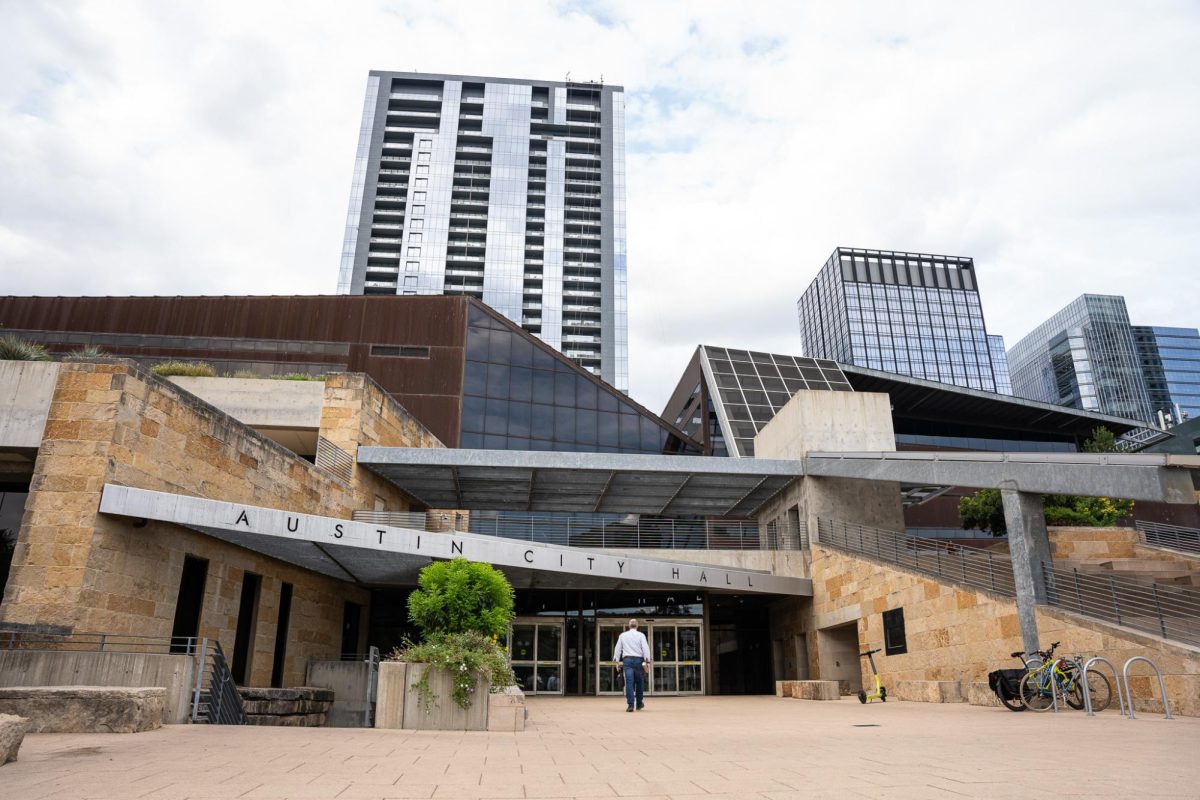Editor’s note: This story is part of The Daily Texan’s coverage of how coronavirus concerns are affecting UT-Austin. Read the rest of our coverage here.
Good Apple, a subscription-based food delivery service, has delivered over 114,000 pounds of fresh produce and pantry staples to more than 3,700 people in need through their “Stay Home, Stay Healthy” program, according to April 22 metrics provided by Good Apple co-founder Zack Timmons.
The “Stay Home, Stay Healthy” program is a temporary free food delivery service that delivers fresh produce and pantry staples to people who are over 55 years old, immunocompromised or at high risk of severe COVID-19 infection, according to the Good Apple website. The program officially launched on March 26 to assist Travis County residents facing food insecurity.
"The COVID-19 pandemic has really changed things, and suddenly we’re seeing much larger increases in the number of people who are facing food insecurity, many for the very first time,” said Timmons, a third-year medical student at Dell Medical School.
Boxes can be delivered weekly, every other week or on a monthly basis determined by the customer’s preference or level of need, according to the website.
Before the pandemic, Good Apple distributed one box of produce to a person in need for every box of produce they sold to a customer, Timmons said. Since the company was established in 2019, it has delivered over 2,000 boxes to paying customers, he said in an email.
With the launch of the “Stay Home, Stay Healthy” program, the company has distributed more boxes to people in need than they have distributed to paying customers, said Michael Measom, co-director of impact for Good Apple.
Prior to March 26, Good Apple partnered with People’s Community Clinic and Dell Children’s Medical Center mobile clinics to identify people experiencing food insecurity, Measom said.
“But when the pandemic hit, there was a huge spike in people needing food, so it didn’t make sense to go through a process like that,” Measom said. “We needed a process that could get people onto our delivery list faster.”
Now, those experiencing food insecurity can fill out a survey on the Good Apple website and apply to receive food assistance, Measom said. The survey is available in five different languages including Spanish, Vietnamese and Arabic, he said.
To expand its services amid the pandemic, Measom said the company has relied on support from community partners.
Since the program’s launch, the company has received $20,000 from the Austin Transportation Department, $20,000 from the Austin Community Foundation in partnership with the Hope Food Pantry and $125,000 from Bank of America, Timmons said in an email.
“That’s what’s so special about the ‘Stay Home, Stay Healthy,’ is that we’ve gotten a lot of economical support from other people around the city, including the city itself, to help us be able to increase our output,” Measom said.
Rakefet Laviolette, mental health counseling graduate student at Seminary of the Southwest, has received food deliveries through the “Stay Home, Stay Healthy” program. Laviolette is a recent breast cancer survivor and said because so little is known about COVID-19, she doesn't know whether or not she is immunocompromised.
“I don’t feel comfortable going to the grocery store or sending my husband to the grocery store, and it’s just gotten really expensive to get anything delivered,” Laviolette said.
When she reached out to Good Apple, Laviolette said they assisted her right away.
Laviolette said she cried when the first food delivery was dropped off at her doorstep because her family was running out of fresh fruits and vegetables.
After receiving her first delivery, Laviolette said she posted on Facebook expressing her happiness and support of the program.
“Ten or 15 of my friends who do still have their jobs did sign up for the program,” Laviolette said. “I feel really good about having encouraged people to sign up and to support this program.”





















